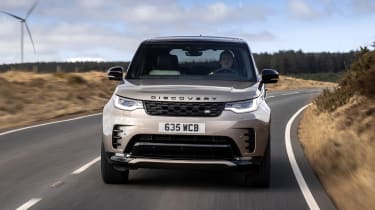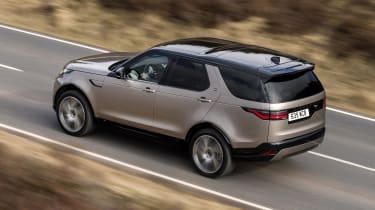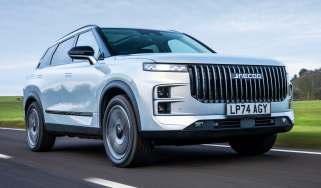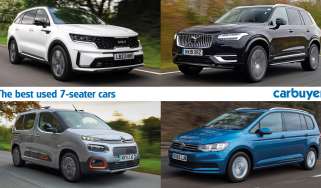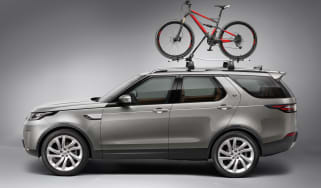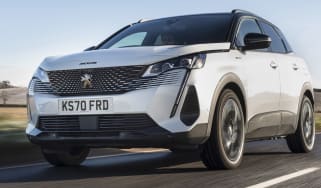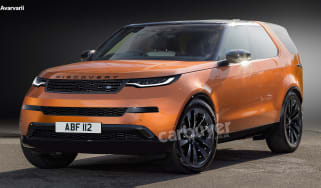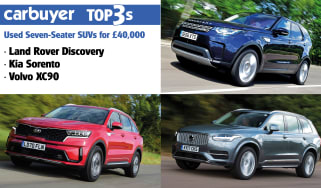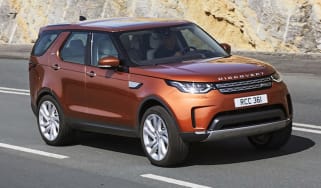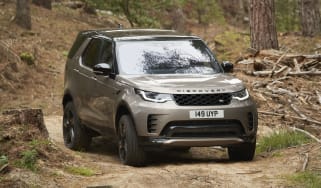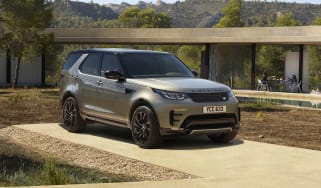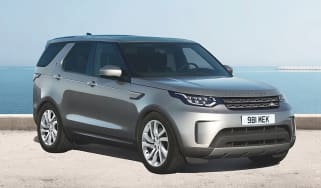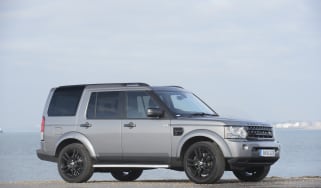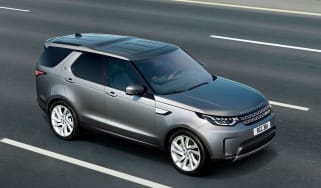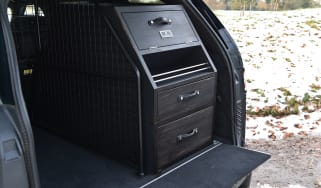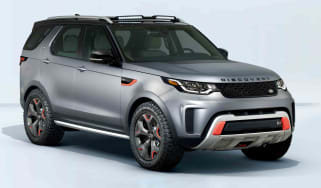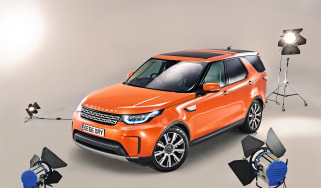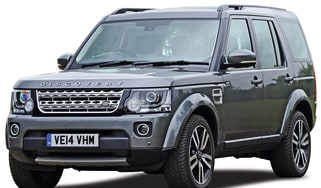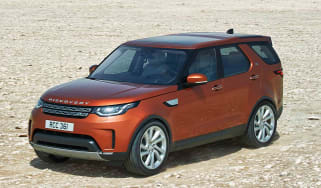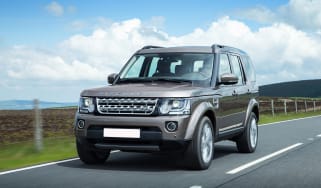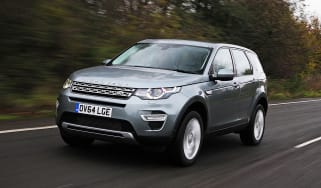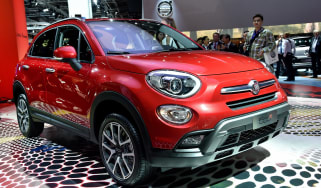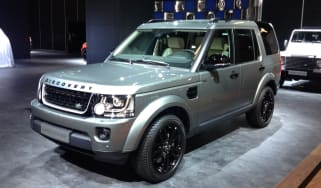Land Rover Discovery review – as decent on-road as it is off it
“The Land Rover Discovery is decent to drive and really spacious, but is far from the most economical SUV”
Pros
- Engine has plenty of poke
- Comfortable and relaxing to drive
- Can seat seven adults in comfort
Cons
- Some extras should be standard
- Gets expensive above base trim
- Higher CO2 emissions than rivals
Verdict – is the Land Rover Discovery a good car?
While the Land Rover Discovery has long been known for its off-road prowess, it’s now just as good to drive on tarmac, too. While it’s not positioned to be as opulent as a Range Rover, the plushness of the Discovery is very impressive, so it makes a great case for itself against rivals. It’s just a shame its mild-hybrid diesel already feels dated up against more efficient and cheaper-to-run competitors.
Land Rover Discovery models, specs and alternatives
The Land Rover Discovery has been a staple family SUV in the brand’s lineup since it launched at the very end of the 1980s. While it’s not unheard of these days, the Discovery’s USP was that it was a family SUV with offroading capabilities priced more affordably than its upmarket Range Rover sibling.
The Discovery is now in its fifth iteration and has since become a lot more premium, but still costs a lot less than a Range Rover, though that doesn’t mean it comes cheap. An entry-level Land Rover Discovery will set you back just over £62,000, but for that you’ll get an incredibly capable family-friendly offroader with up to seven seats, which might well appeal if you have a large family and live in the countryside.
Rivals include the Audi Q7, BMW X5, Mercedes GLE and Volvo XC90, though none of these can match the Land Rover for off-road ability. Those models do have their own benefits, particularly when it comes to electrification (the plug-in hybrid versions of these cars also bring tax benefits for company car drivers).
 Best luxury SUVs to buy in 2025
Best luxury SUVs to buy in 2025
The current Discovery has lost the recognisable, boxy looks of the previous version but the improvements to fuel economy, technology and handling mean it’s better than ever. In 2021, the Discovery was updated with some new lights and bumpers, plus a new ‘Pivi Pro’ infotainment system that was a pretty big improvement over the previous infotainment system.
More reviews
There’s plenty of safety kit in the Discovery and a premium interior that includes seven seats. The sixth and seventh seats aren’t just an afterthought, like they are in some seven-seat SUVs, because you can actually fit adults in there, although tall people might find it slightly cramped.
The boot is big even with all seven seats in use and with the third row folded down, there’s a huge amount of space for luggage. Despite its large size, the Discovery is also good to drive - it handles well on a twisty road but is also really comfortable and smooth on the motorway and over rough country roads.
The latest Discovery engine range has been revised a few times since launch, but as of February 2025 there’s just one option: the 3.0-litre D350 six-cylinder turbodiesel with mild-hybrid assistance. With 348bhp, there’s plenty of pull available from this engine, though its fuel economy of up to 34.8mpg isn’t particularly impressive in 2025. You can forget about petrol motors, though, because these have disappeared entirely, and there’s no plug-in hybrid version for even lower running costs and low Benefit-in-Kind (BiK) bills for company-car buyers.
While the latest Discovery is rather more agile than its lumbering predecessor, there’s no escaping its height of nearly two metres, so you’ll experience a fair bit of body lean if you try hustling it through corners. It has been made firmer and more direct as part of the facelift, and while handling is sharper, there's been a reduction in comfort too. Meanwhile, its Terrain Response system and generous ground clearance give it serious off-road credentials.
Even the entry-level Discovery S includes an 11.4-inch touchscreen, seven seats, air suspension and a ‘powered inner tailgate’, which gives you somewhere to sit when out and about and largely makes up for the absence of a split-folding tailgate. This entry-level model undercuts most rivals and all Discoveries have seven seats as standard – BMW X5 buyers are charged extra for a third row.
After Euro NCAP crash-testing, the Discovery was awarded the maximum five stars, while autonomous emergency braking and lane-departure warning are standard. Land Rover's showing in our annual Driver Power customer satisfaction survey was encouraging, with its 14th-place finish out of 29 manufacturers showing improvement from results close to the bottom of the table in recent memory.
Overall, the Discovery is a very desirable family SUV. Only its slightly contentious styling and high running costs blot the Discovery’s report card – the front three-quarter view has a strong Range Rover resemblance, but the strangely offset number plate and imposing bulk of its rear end isn’t universally admired.
What about a used or nearly new Land Rover Discovery 5?
A large luxury SUV with generous seating for seven and a cavernous boot, the Land Rover Discovery 5 is a popular used car choice despite its rather poor record of reliability. Used prices are typically in the £30,000 to £60,000 bracket on dealer forecourts, although early, high-mileage examples for sale privately can dip into the 20s. Relaxing, comfortable and refined to drive, the Discovery 5 is available with a range of petrol and diesel engines, most of which offer spirited performance, although some of them are rather thirsty. What sets the Discovery apart from its rivals is its considerable off-road ability – few owners may ever use it, but it gives them a warm feeling to know that it’s there.
What’s its history?
Launched in 2016, the Discovery 5 was the practical and slightly cheaper alternative to Land Rover’s other big seller, the decidedly upmarket Range Rover, although most models could be described as luxurious. Able to seat seven adults comfortably, quiet and refined to drive, and with the ability to double as a van when all its seats were folded flat, the Discovery 5 quickly gained many fans. The initial engine line-up comprised two turbocharged diesel engines, a turbocharged V6 diesel and supercharged V6 petrol, and in 2018 these were joined by a twin-turbo four-cylinder petrol engine and a twin-turbo V6 diesel.
In 2020 the Discovery 5 was thoroughly revamped, gaining a new range of mild-hybrid petrol and diesel engines (conventional internal-combustion engines teamed with small electric motors to enhance fuel economy and emissions), an interior refresh with an improved infotainment system, and facelifted front and rear styling.
Read the full Discovery Mk5 used review...
Used Discovery 4 (2009 to 2016)
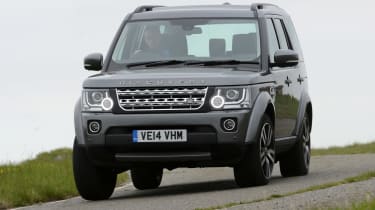
More a heavily revised version of its predecessor than a completely new model, the Discovery 4 is ruggedly handsome, refined to drive, luxuriously appointed and extremely spacious.
Read the full Discovery Mk4 review...
Used Discovery 3 (2004 to 2009)
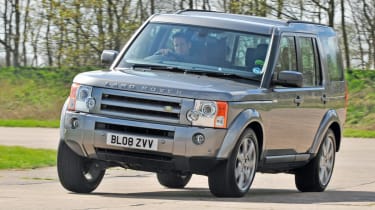
Blending practicality with comfort, the Discovery 3 is roomy and plush inside and drives exceptionally well. Although extremely capable off-road, it also fulfils the role of a luxury car.
Read the full Discovery Mk3 review...
Older Discovery models (1989 to 2004)
Original Discovery models are now considered modern classics and when new bridged the gap between farmyard and Fulham. The Mk2 retained the Mk1’s go-anywhere credentials, but the focus of its cabin design and marketing shifted towards premium customers.

